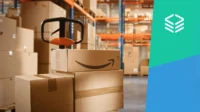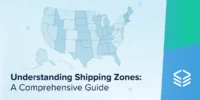When looking to the future of logistics and supply chain, trends suggest a change in perspective may be fast approaching. The lines between logistics and technology services are blurring, and we can expect technology to play an ever more significant role in the supply chain.
Data, Digitization, & Supply Chain Analytics
Of the many developments shaping the future of supply chain and logistics, arguably one of the most significant is supply chain analytics. Big data is all the rage, and everyone from Amazon to the smallest logistic firms are utilizing advances in supply chain analytics to their advantage.
According to a study conducted cited by Global Trade Magazine nearly 100% of 3PL’s and shippers surveyed stated data-driven decision-making was essential to their supply chain activities. Advances in electronic data interchange (EDI) technology makes data-decisions even easier.
As 3PLs and 4PLs continue to leverage IT platforms we can expect logistics and supply chain to quickly become data-centric industries. Look for innovations like SaaS in the supply chain, supply chain digitization, and for data to replace fuel as the biggest influencer.
Automation & Artificial Intelligence
Expect automation to play a larger role in logistics and supply chain as we move into 2019. Much of the supply chain is made inefficient by old-fashioned processes that cost billions in lost time, money, and manpower.
Logistics firms know they need to automate to stay competitive, and they are turning to artificial intelligence to help them do it. Hardly a day passes in which artificial intelligence does not find a new way to streamline processes, and improve speed, efficiency and collaboration across the supply chain.
Let’s not forget about the recent advances in warehouse technology which have enabled fulfillment centers to orchestrate all activities associated with the warehousing and distribution process, from managing inventory, and pick/pack functions, to streamlining workflows to maximize efficiencies.
However, when it comes to artificial intelligence and automation it’s hard to ignore the automation of road transportation, especially the use of artificial intelligence, machine learning and IoT to drive trucks and move freight. In fact, according to research compiled by Frost & Sullivan, and cited in Forbes, 50% of fleets expect to be at least semi-autonomous in the coming year.
Supply Chain & Logistics get Uberized
The future of supply chain and logistics is uncertain, but one thing we can count on moving into 2019 is the continued “uberization” of the industry.
The growth of e-commerce, coupled with the automation and digitization of trucking is forcing freight brokers to adapt their business model and adopt a mobile-based, freight brokerage platform, similar to rideshare platforms like Uber and Lyft.
Uberization is not limited to logistics, On-demand warehousing is the innovative new warehousing and distribution model that connects available warehousing space with businesses who only need a small amount of space, for a short amount of time.
It enables retailers to dynamically deploy different inventory volumes to different warehouses across the country in little to no time, thus expanding the retailer’s previous distribution network into a comprehensive and responsive supply chain that is ideally suited to the ever-changing ECommerce marketplace.
Last-Mile Delivery
Thanks to advances in omnichannel retail demand for last-mile delivery has only increased. However, for most firms, last-mile delivery is the most cost-intensive area of their supply chain.
In the future we can expect retailers to grow better at managing omnichannel fulfilment processes and last-mile fulfilment. Look for drones, driverless trucks and more “unconventional” last-mile delivery methods.
Supply Chain Social Responsibility
As supply chain and logistics technology advances, our responsibility to sustain the world around us becomes more and more of a priority. Moving into 2019, trends suggest that firms will prioritize sustainability, carbon footprint reduction, and supply chain transparency.
Flowspace can help you with all your warehousing needs. To receive more information regarding the future of supply chain and logistics and how we can help, request more information below.





